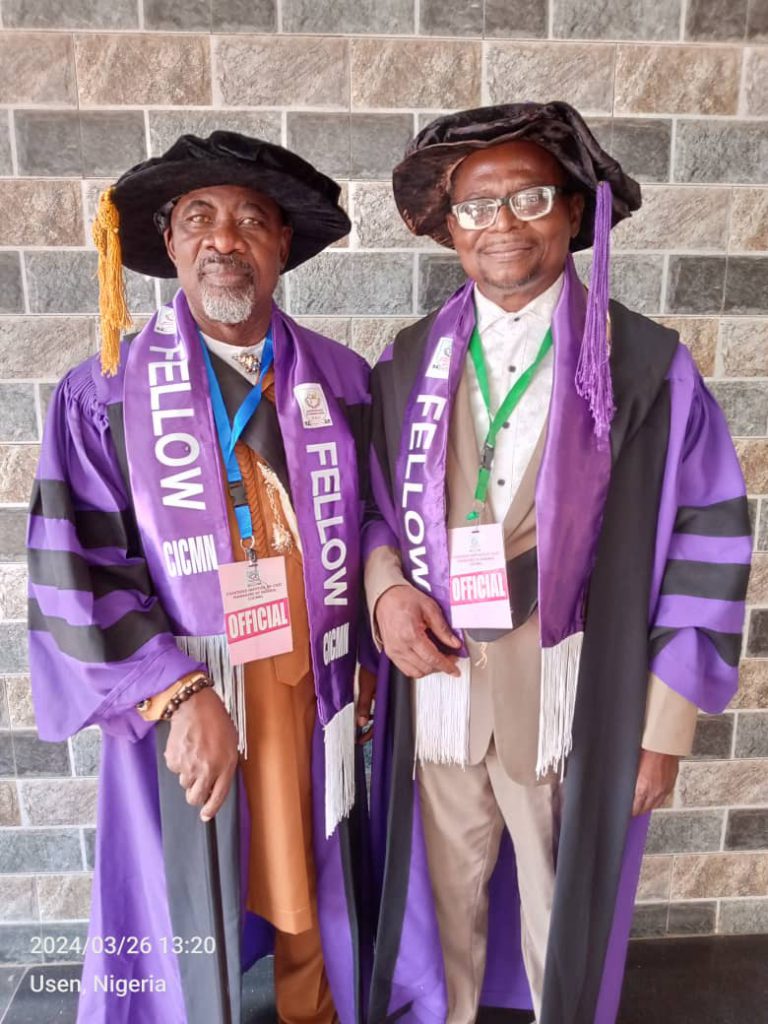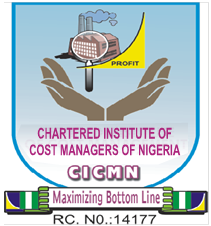Cost Management Capacity Development In Nigeria
CICMN... Building a cost effective and
efficient economy
Over the years of the existence of the Institute, it has embarked on several cost management capacity building initiatives aimed at narrowing the Knowledge, Skill and Attitude (KSA) gap that had hitherto prevailed in the country. This was targeted at developing new breeds of professionals whose role would be to function in this new area of professional challenges. In achieving this, the institute opened its door wide for one-year direct membership concession in May 2002. As part of its enlightenment programme the institute held an inaugural public lecture with the theme Cost Management Profession-The emerging Economic Imperative. The lecture, which held at the Bankers house, was well attended and the attendance was sustained throughout the many hours it lasted due to the impact of the professional concepts on participants. The lecture, which was presented by the then founding President of the Institute N. V. Omoregie, reviewed the importance of cost management to economic development and some key concepts available in the actualization of effective cost management.
Interestingly, the public lecture served effectively in sensitizing the business and professional communities towards cost management consciousness as it set in motion series of cost management discuss in different forum.

In July 2002 the Institute organized an international cost management conference/seminar at Sheraton Hotel & Towers, Lagos. The theme of the Conference was Strategic Cost Management-The Road to Business Excellence. The two-day conference was an opportunity to bring cost management profession to the forefront of economic activities through lectures, which focused on the conceptual framework and practice of the profession. The conference was well attended by participants from all walks of life. The resource persons were Mr. John Cleary, a cost management specialist, a fellow of Australian Institute of Directors and Director, Blue Chip Consulting Group based in Melbourne, Australia and N. V. Omoregie, then President of the Institute. The Special Guest of Honour was the then Chief Economic Adviser to the President of the Federal Republic of Nigeria. Dr. Magnus Kpakol. During the induction the first set of practitioners as Associates were inducted. Fellowship awards were also made to deserving Nigerians and non-Nigerians.
Subsequently, the institute has been admitting and developing members through well articulated and packaged Cost Management Skill Development Workshops with the aim of impacting on participants advanced cost management knowledge and skill as well as develop cost management mindset needed for the effective practice of the profession. This has yielded much result as participants to our workshops have grown tremendously. In 2002 alone we had three (3) of such workshops with themes Target Cost Management-Pricing Strategies for competitive advantage, Capacity Management: An effective Cost Management Tools and Discovering Hidden Profits-The Cost Management Approach. These workshops were spread across Nigeria for equal opportunities. The last of the pre-induction workshop for 2002 was held in November along with an induction ceremony for over a thousand new members admitted into Associate membership. As at the close of 2002 the Associate membership strength of the institute was over 3,000.
During the 2003 Nigerian Economic Summit, the Institute was represented by the then President and made substantial contribution towards the need to develop a national policy on cost management in Nigeria which should have assisted in redirecting and refocusing attention to the need to effectively manage cost as a panacea to sustainable economic growth and development. For the first time a deliberate attention was given to framing instruments that would assist in ensuring effective cost management in Nigeria. This was evidence in the recommendations of the Budget and Economic Coordination Committee, in which the institute prominently functioned. The issue of Value for money audit, effective price monitoring and benchmarking as well as enactment of Fiscal Responsibility Act were among issues of vital cost management emphasis. However, over time all these processes lost its steam.
The Institute played a significant role in the process that culminated to the formation of Bureau of Public Procurement although government did not factor into consideration our position on the overall outlook of the Bureau with reference to the need to expand the function of the bureau to cover not only procurement issue but overall public expenditure management. If this was done then there would not have been the need for the now Efficiency Unit being put in place by the Minister of Finance. Our position on the formation of the Efficiency Unit by the Minister of Finance particularly now that government is talking of reviewing the structure of administration is an unnecessary duplication. The existing Bureau of Public Procurement can be restructures as a Public Expenditure Commission which was what we had advocated earlier on. We also advocated that BPE should be devoid of the public sector bureaucracy and empowered with a compliment of personnel with cost management background.
From then till date the institute has made positive impact on the economy through the injection into the economy men and women desirous of making a career in cost management practice. We also addressed many national issues including the disparity in the focus of national budget and the failure to focus on the key spending that would improve on human development index of the country. This year our national conference is focusing on Managing Cost of Governance in Nigeria. Today, the membership strength of the Institute stands at over 5,000.



